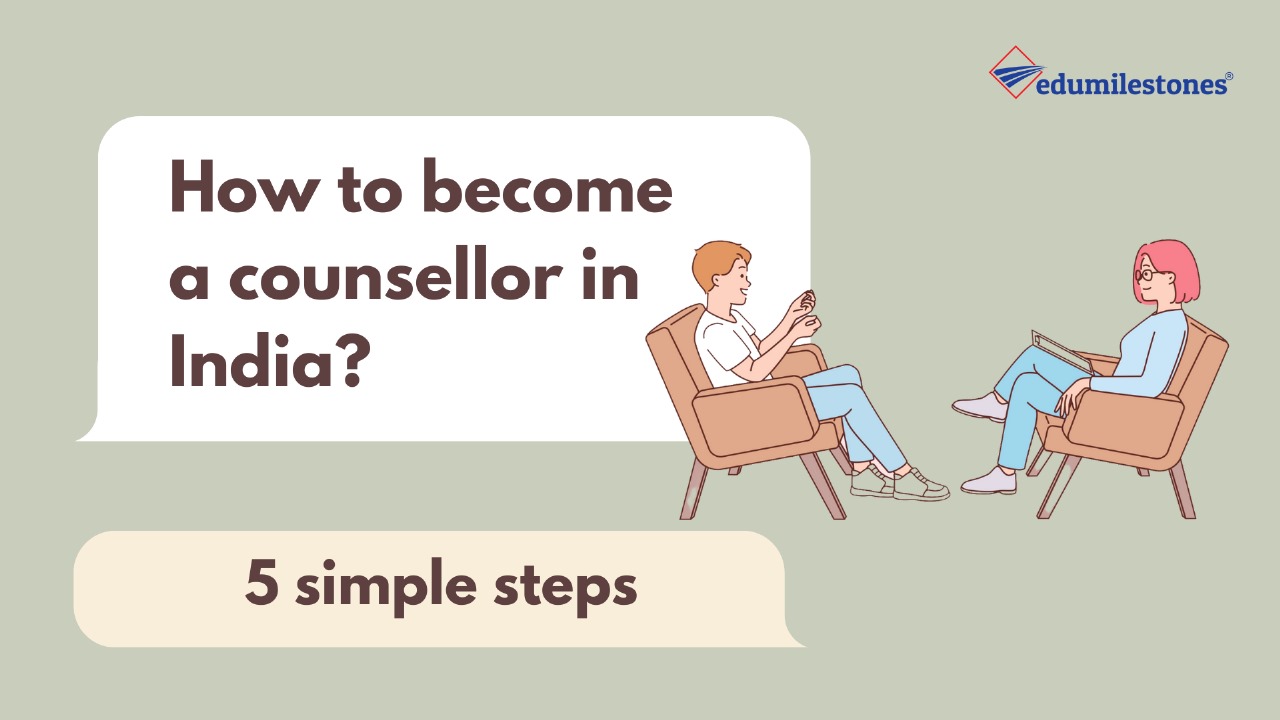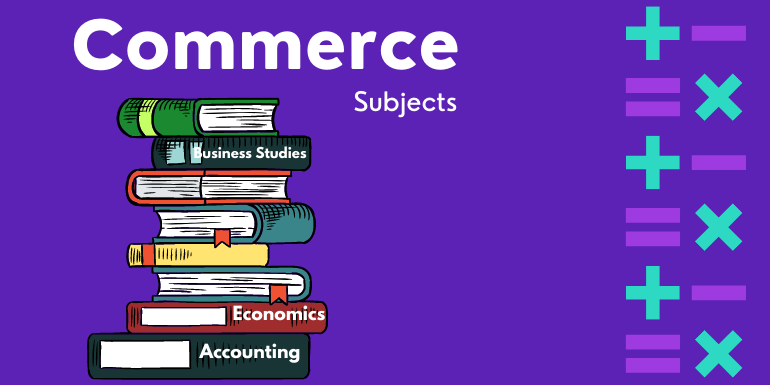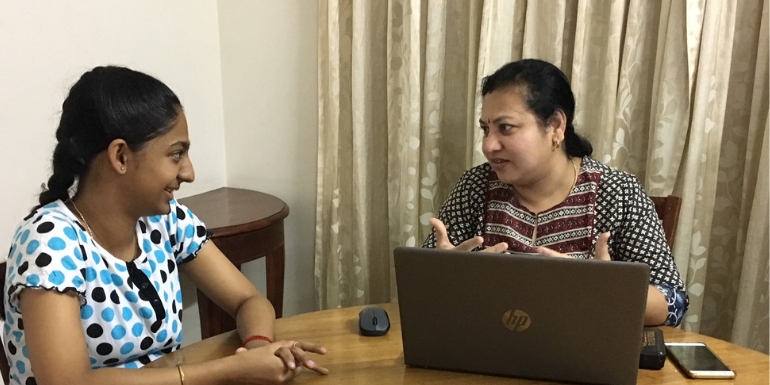With people suffering from emotional turmoil, personal setbacks and career dilemmas every day, the need for counselling has become paramount. People often feel like there is no end in sight to their issues and are left stranded with their lives derailed. Counselling offers a beacon of hope - a pathway to resolution and personal growth. Have you ever considered being the guiding force behind someone’s personal growth and resilience?
Consider Jamal’s case. He attended career counselling and overcame his socio-economic barrier to secure a five-figure paying engineering job. I would go on to say that in this day and age, with India striving to be the world’s third largest economy and possessing a population in the excess of 1 billion, counselling is the most important profession for applicants to consider when it comes to resolving issues both in personal and interpersonal fronts.
Amidst this backdrop, we have come up with a blog that will shed light on the career of counselling and how anyone with a keen eye for psychology can become a counsellor. If you are intrigued by this and wish to help those in need, stick around to find out five expert tips on how one can become a counsellor in India.
What is Counselling?
Counselling is a form of support wherein clients engage in a collaborative dialogue with a trained professional in a confidential setting. Clients, who may be individuals, groups, couples or families bring forth their life challenges in search of solutions and guidance. Within this alliance, the counsellor and client work in tandem to set goals and outcomes and achieve them.
The organisation 20/20: A Vision for the Future of Counselling states that:
“Professional counselling is a professional relationship that empowers diverse individuals, families, and groups to accomplish mental health, wellness, education, and career goals.”
Through the process of counselling, clients enhance their self-understanding, gaining insight into their thoughts, emotions and behaviour, thus empowering them to face life’s challenges with resilience and clarity.
Who Can Become A Counsellor?
In India, the pathway to becoming a counsellor is open to a variety of individuals, including those interested in psychology and helping others. Whether they are school children or working professionals, men or women, those who want autonomy in business or a lucrative stable salary, the door is open for all, provided they complete the required educational qualifications.
With over 300 million schoolchildren in need of counselling in the country, the profession is a fast-growing, recession-proof industry. Counsellors can attain autonomy by setting up their businesses or working in hospitals, shelters, career centres etc. and earn a hefty salary.
What Do Counsellors Do and What Are Their Responsibilities
The roles and responsibilities of a counsellor encompass a multifaceted set of commitments made with the client. They:
- Provide Emotional Support: Counsellors facilitate a safe and secure environment for the client by listening and engaging with the person’s concerns, emotions and struggles without a fear of judgement.
- Facilitate Self-Exploration and Insight: Counsellors continually engage with clients to help them explore their thoughts, feelings and emotions to facilitate self-awareness and insight into the underlying issues contributing to their challenges.
- Develop and Implement Treatment Plans: After evaluating the client’s needs and requirements, counsellors develop a well-rounded treatment plan that offers personalised strategies to promote positive change. They then set goals and achieve them together with the client.
- Maintain Professional Boundaries and Ethical Standards: Counsellors are bound by a code of professionalism and ethical standards in order to provide a confidential and safe setting for clients where their issues are not discussed elsewhere or with others.
- Promote Coping and Resilience: Counsellors help clients learn coping mechanisms and resilience strategies to face life’s challenges and adversities in the future.
How to Become a Counsellor in India?
-
Earn a Bachelors Degree
The initial step towards embarking on a career as a counsellor involves pursuing an undergraduate degree in Psychology, Clinical Psychology, Counselling Psychology, or a related field. A biology background during the 12th standard is not mandatory for this path. Candidates have the option to pursue either a B.Sc or a BA degree to qualify as counsellors. The curriculum typically includes courses such as Counselling Psychology, Developmental Psychology, Social Behaviour, Clinical Psychology, Educational Psychology, Forensic Psychology, and Abnormal Psychology.
2. Seek Higher Education
Following the completion of the Bachelors degree, most individuals proceed to obtain a Masters in psychology, which is often a requirement for various psychology fields including clinical psychology, counselling psychology and social work. Many Masters programs offer internship opportunities as part of the curriculum. Moreover, individuals can advance their credentials by pursuing a Ph.D., which involves a two to three-year course and entails thesis submission.
3. Earn Certifications
One can enhance their stature as a counsellor by obtaining certifications in psychology. Various online platforms like Coursera and Udemy are available and practitioners can earn certifications via the internet. There are also physical centres present throughout the country that offer certifications in psychology. Find out how certifications can aid your career through Edumilestones Certified Career Analyst Course.
4. Gain On-Hands Experience
A crucial part of ones academic journey is to gain field experience. This is possible through pursuing internships in offices, hospitals or as apprentices to other practitioners. Often having work experiences after completing a bachelors degree will greatly determine the success of joining a Masters program. This hands-on experience not only enhances academic learning but also teaches valuable life lessons such as independence and financial management for youngsters.
5. Work For Organisations or Set Up Your Practice
Upon completing their education and gaining sufficient work experience, individuals can enter the job market either by working for organisations aligned with their specialisation or by establishing their practice. For instance, specialising in child psychology opens avenues to work in schools, outreach programs, or establish private practices catering to child clients. Both options offer lucrative opportunities, with private practice affording autonomy over schedules, fee structures and management styles. Edumilestones helps you set up your practice. by offering technological, business and marketing support.
How Much Do Counsellors Earn in India
The average salary for a counsellor in India is Rupees 1,06,621 per month. However, there are varied reasons one can earn more or less based on geography, number of clients and type of counselling provided. For example, a counsellor in an urban region will earn more than one in a rural region. Based on the number of clients, counsellors can earn up to Rupees 5,00,000 per month.
These are the five simple steps to becoming a counsellor in India. The process is seamless and the occupation is lucrative and pays handsomely. For all those who are psychologically inclined and want to help out others, becoming a counsellor is a worthy option to consider. Finally, below are the top colleges in India offering degrees in psychology.
Top Colleges in India Offering Bachelors in Psychology
- Delhi University, New Delhi
- Jamia Milia Islamia, New Delhi
- Ambedkar University, New Delhi
- Panjab University, Chandigarh
- Banaras Hindu University, Varanasi
- Aligarh Muslim University, Aligarh
- Fergusson College, Pune
- Christ University Bangalore
Top Colleges in India Offering Masters in Psychology
- Delhi University, Delhi
- Tata Institute of Social Sciences, Mumbai
- Ambedkar University, New Delhi
- Jamia Milia Islamia, New Delhi
- Christ University, Bangalore
- Ashoka Univesity, Sonepat
- Panjab University, Chandigarh
- Banaras Hindu University, Varanasi
- Aligarh Muslim University, Aligarh
- Fergusson College, Pune















